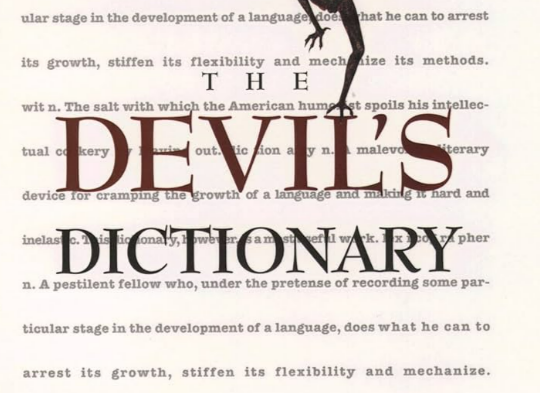Chapter B
byChapter B begins with a look at Baal, a deity once worshipped across various ancient civilizations, often symbolizing power and natural forces. Bierce does not simply define Baal as a figure of mythology; he connects it to the confusion born of humanity’s attempts to build structures—literal and ideological—that reach too far. By referencing the story of Babel, he draws a line between the ambition to touch the divine and the chaos that follows. The implication is that veneration often disguises arrogance, and worship becomes an excuse for disorder, not clarity. Bierce turns mythology into a mirror reflecting human pride masked as devotion.
Babe is framed not as pure innocence, but as a creature that evokes intense emotion from adults without understanding it itself. It is neither angelic nor demonic—just unaware. In contrast, Bacchus is used to reveal a darker truth: people use divine figures not for worship, but for justification. The god of wine becomes an excuse for indulgence, allowing people to act without guilt while pretending to follow tradition. Bierce plays these two figures off each other to show the absurd range of human emotion—how awe and excess can be placed side by side without question.
The term Backbite speaks to how often betrayal hides behind civility. Bierce defines it as slander committed from a safe distance, mocking those who attack only when unthreatened. It’s a commentary on cowardice disguised as criticism. Similarly, Bait is not merely a lure—it’s a metaphor for manipulation. Whether in conversation or commerce, humans often entice others with false promises to get what they want. Bierce’s definitions turn everyday words into warnings. He exposes how much of human interaction relies on subtle deceit.
Baptism is treated with scathing humor. Bierce reduces it to a ritual more symbolic than sacred, questioning whether such ceremonies offer genuine transformation or just public validation. He even implies that the arguments between different faiths over the “right” way to baptize are less about belief and more about self-importance. His tone suggests that the sanctity of the ritual is often overshadowed by its spectacle. Through this entry, he calls into question how rituals are used not for spiritual growth but for status and division.
The Battleground is stripped of its supposed glory and revealed as a place where ideas fail and force takes over. Bierce notes that it’s the spot where arguments, having lost logic, resort to violence. His critique touches on how societies glorify war as noble when it often arises from petty disputes and unresolved conflicts. Beard, meanwhile, is mocked as a mark of maturity that is more cosmetic than meaningful. Bierce suggests that appearances, often treated with undue respect, rarely align with substance. Even something as trivial as facial hair becomes a symbol of misplaced reverence.
In Bigotry, Bierce’s tone sharpens. He defines it as the act of viewing others’ beliefs as unreasonable while fiercely defending one’s own. The insight stings because it remains true—many who accuse others of close-mindedness refuse to examine their own convictions. It’s a callout not to religion or ideology alone, but to the universal tendency to judge without reflection. His satire turns the spotlight inward, forcing readers to see themselves in the very flaws they critique.
The entry for Beauty is poetic but disillusioning. Rather than treating beauty as timeless or divine, Bierce frames it as a tool—used for influence, weaponized for power. He notes that beauty can inspire, but also deceive, making it a double-edged force in both personal and societal contexts. It is admired, but also feared, because of its power to disrupt logic and drive desire. Brain, perhaps one of the most biting entries, is treated with irony. Bierce implies that intelligence is often unused or misused, existing more as a potential than a practice.
In his definition of Bore, Bierce offers a painfully accurate social observation: someone who talks when others want to speak. This entry captures how communication is less about exchange and more about competition for attention. The Book, instead of being revered, is framed as an object whose value depends more on perception than on truth. Bierce challenges the idea that reading equals wisdom, noting that books often confirm what readers already believe, rather than challenge them.
By the end of the chapter, Bierce has unpacked dozens of everyday words to reveal their hidden contradictions. He doesn’t ask the reader to reject meaning but to reconsider how meanings are formed. Through wit and sarcasm, he urges a more skeptical engagement with language and with life. His definitions are not just playful—they’re critical tools for thinking. They expose how even the most common words carry assumptions, judgments, and histories we rarely acknowledge. Through that lens, The Devil’s Dictionary continues to serve as a challenge: not to mock belief, but to see it clearly.

